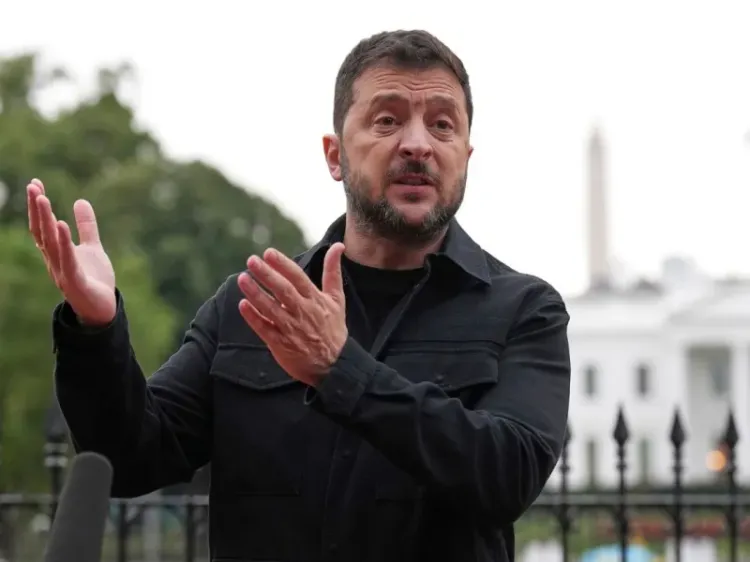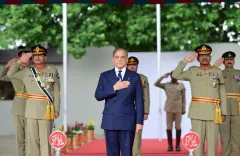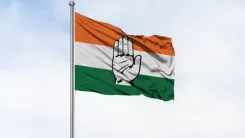Is Zelensky's Support for US Tariffs on India a Wise Move?

Synopsis
Key Takeaways
- Zelensky supports US tariffs on India for Russian oil imports.
- The stance reflects Ukraine's strategy against Russian aggression.
- India's humanitarian aid to Ukraine complicates diplomatic relations.
- The G-20 Summit declaration has sparked controversy regarding its language.
- Zelensky prioritizes gratitude in international relations.
New Delhi, Sep 8 (NationPress) Ukrainian President Volodymyr Zelensky has openly expressed his support for Washington’s initiative to implement punitive tariffs on India and other nations for their imports of Russian oil, labeling it as the “right idea”.
In a recent interview with ABC News, Zelensky was questioned regarding President Donald Trump's decision to levy tariffs on India.
This discussion comes in the wake of heightened concerns following the Shanghai Cooperation Organisation (SCO) Summit held in Tianjin, China.
During the summit, images of Prime Minister Narendra Modi's interactions with Russian President Vladimir Putin and Chinese President Xi Jinping painted a picture of a robust alliance emerging in Asia. Zelensky reportedly stated that it is “the right idea to impose tariffs on countries that persist in making agreements with Russia”.
Even though PM Modi has made gestures towards peace and has provided humanitarian aid to Ukraine, including fuel, Zelensky's remarks have been met with surprise and criticism.
His response was influenced by multiple factors, with the most widely speculated reason being that such punitive measures against a rising power like India could deter other nations from purchasing oil from Russia.
Additionally, the Ukrainian President has not forgotten the embarrassment he faced during his first Oval Office meeting in late February 2025 with President Trump and Vice President J.D. Vance.
During that encounter, Trump accused Zelensky of “disrespect” and “gambling with millions of lives”, while his deputy reprimanded him for not expressing “thanks” for U.S. military assistance.
Despite the heated exchange, Zelensky later conveyed his appreciation to the U.S. for their “support” and for “this visit”.
He also expressed gratitude towards Trump, Congress, and the “American people”, emphasizing that “Ukraine seeks just and lasting peace, and we are diligently working towards that”.
Since then, Zelensky has adopted a stance of gratitude rather than confrontation.
He understands that the White House must now directly pressure Putin to cease hostilities. However, the most significant factor remains the G-20 Summit's New Delhi declaration in 2023.
The initial draft of the New Delhi Declaration explicitly mentioned “Russian aggression” in Ukraine, but New Delhi negotiated a shift to a more neutral term, “war in Ukraine”.
This change diverges from the 2022 G20 Bali Declaration, which explicitly expressed “deep concern” regarding Russia's invasion and the consequent humanitarian crisis.
This adjustment removed direct blame and reframed the discussion to depict the situation as a conflict impacting global stability rather than as unilateral aggression by Russia.
Ukraine subsequently deemed this as “deeply disappointing” for lacking explicit reference to Russia’s aggression, labeling it a “missed opportunity” that “lacks clarity and courage” and risks encouraging further unprovoked acts of force.









